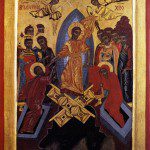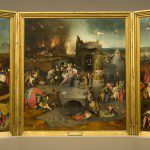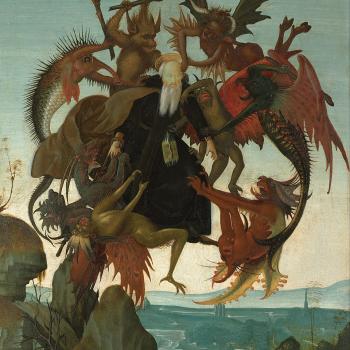![The Ancient of Days by William Blake [Public domain], via Wikimedia Commons](https://wp-media.patheos.com/blogs/sites/637/2017/04/Europe_a_Prophecy_copy_D_object_1_Bentley_1_Erdman_i_Keynes_i_British_Museum-220x300.jpg)
Many, if not most, engage providence, fatalistically. God, they see, acts in a simple, straightforward manner, and so they say he provides one particular outcome as being the only right outcome for each person, turning providence into a thing of necessity. That is, God has one plan for each person to fulfill for themselves, a plan which if it is not fulfilled means the person not only has failed God, but they have failed themselves because they have not lived up to God’s intention for their lives. Likewise, this means that the choice we have in life is a simple choice, to accept and engage one particular calling in our lives, and by accepting that choice we receive the grace we need in order to fulfill it, or else risk losing the glory God intended for us in our lives, and if we divert ourselves too far from that intention, we risk eternal perdition.
Certainly, all of the above is one way to understand providence. It is not the only way. We can encounter providence as the way God sets the stage for human choice, allowing for a verity of possible outcomes, each of them good, although certainly some of them will be better than others. That is, instead of seeing God as planning one possibility for each person, God provides each person with a variety of possibilities; while he might know what will be chosen thanks to his eternal existence, he acts with us in time so that he creates the range of opportunities for us so that we are given true freedom, instead of being forced around to one conclusion like a rat in a maze. God’s providence can be seen as engaging us so that it provides us with a variety of ways by which we can cooperate with God’s grace. From our perspective, we do not need to see it as establishing only one possible end for each of us, but rather, God provides the means by which we can follow one of many paths to one of many possible conclusions for our lives. God’s providence sets up those ends with grace, so that in and through each of them, there is the opportunity for us to come to him and open up to him in love and so find that end as being one with our eternal union with him. God’s providence, far from being fatalistic, is the means by which he gives us our freedom. We do not have to believe there is only one plan for us, so that if early on in our lives, we fail to meet it the rest of our lives becomes moot. The same way that grace perfects nature, making sure a person is not a failure because of sin, is to be seen as the way providence opens up with God’s grace further opportunities, further pathways for a person to take if they do not take one which is being offered to them at a particular time or place, so that they can continue to find new ways to form themselves in relation to God.
Providence must be understood as the way God provides for his creation. It is through such providence God is said to govern his creation, as St. Bonaventure explained:
And because that will, governed by reason, is called providence, all things that happen in the universe are done and governed by divine providence, which is thoroughly beyond reprehension because it lays down no precept, no prohibition, no counsel, except according to justice; it does nothing except for good, it allows nothing contrary to justice.[1]













